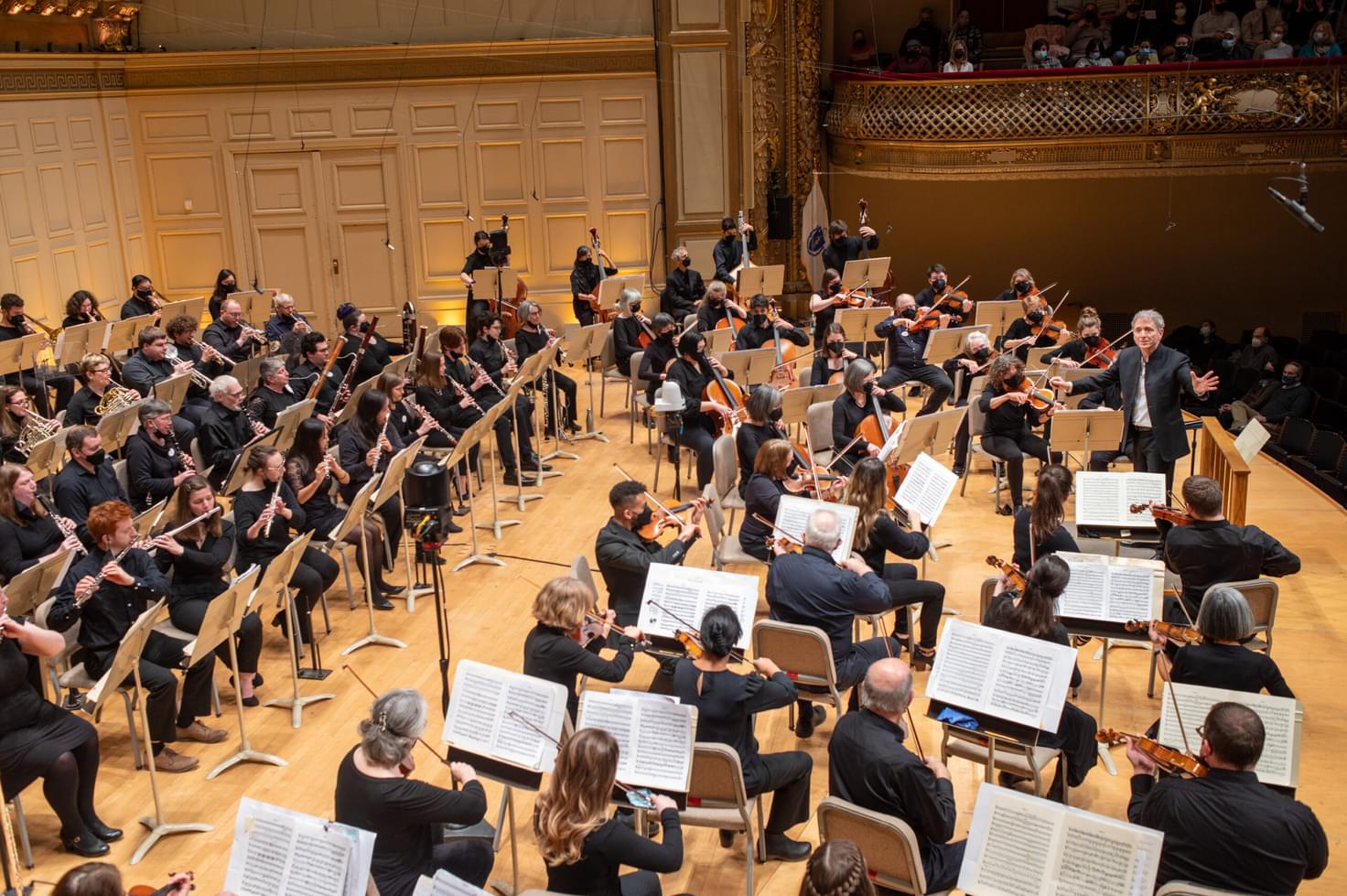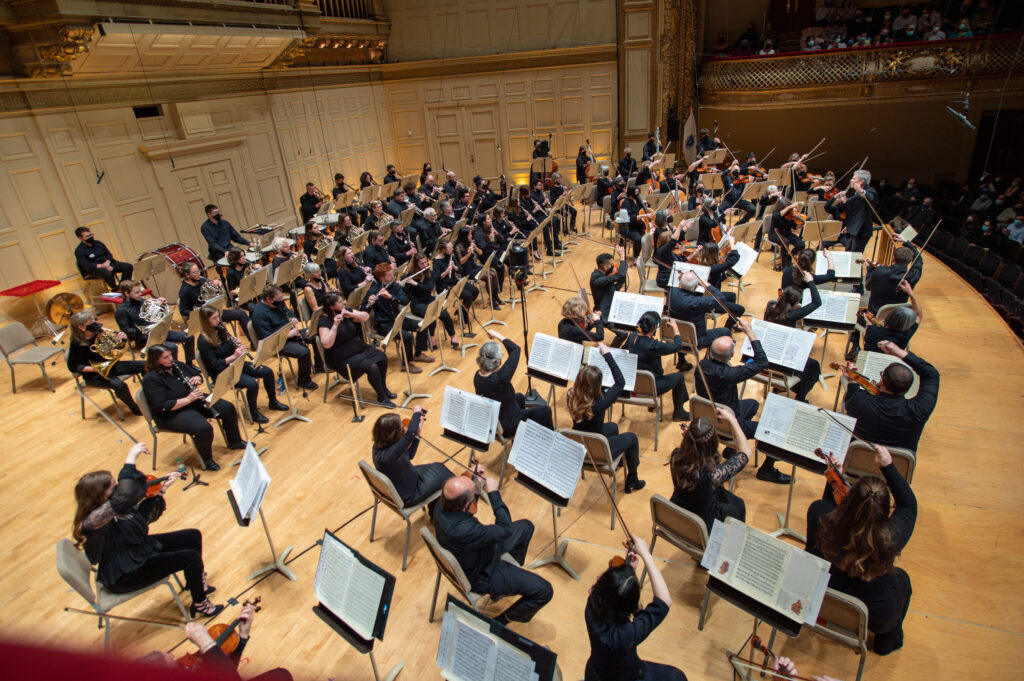
Words by Tess Becker
Music is an art. It brings people together.
From concert halls, to crowded living rooms or outdoor venues, people often bond through the music surrounding them. Yet still, there are barriers to entry. Classical music, in particular, is populated by elitism that makes it hard to break into and enjoy for the layman, even more if you’re in society’s margins.
That’s where an orchestra like Me2 comes in.
Me2 started with one goal in mind: making classical music accessible, primarily by opening it up to people who are struggling with mental illness. The first conductor and co-founder, Ronald Braunstein, lost his previous role due to a bipolar episode he was experiencing.
“[Ronald] came to me one day and said, ‘I'm not going back into this the same old rat race, I'm not going to put myself in a position where I can be stigmatized and discriminated against because people expect me to fit into a certain mold as a conductor,’” the Executive Director and co-founder of Me2, Caroline Whiddon, tells Smiley News.
“‘My brain obviously doesn't work that way. I need a safe space. So I want to create an orchestra for people like me.’”

Caroline and Ronald founded Me2 in 2011. “I started to Google and of course realized very quickly that there was no such thing like us, especially in the classical music world, it's kind of like the antithesis of the way that we're trained,” Caroline says.
“Ronald went to Julliard, I went to the Eastman School of Music. Any of these schools, they train you to show up, be prepared, play the notes, do your job, and it's really stressful.
"[So he said]... I want to get together with people like me who may not be quite as consistent, who may need a little extra help getting to rehearsal functioning within the group.”
Attempting to break the formality that they were used to in the classical music world, Caroline and Ronald wanted to make Me2 – a registered nonprofit – accessible in ways that no other orchestra was.
They started off by adopting basic rules that have been maintained until today. The first is that there are no auditions, if someone is willing and able to play in the orchestra they are allowed to join. Next, there are no fees involved since they “didn't want socio-economics to play into it.” And finally, no stigma is allowed.
“We're just really trying to set the example, through our words, but also through our actions from the very beginning that everybody is welcome,” Caroline says, "and that if somebody's having a bad day, that's cool. That's okay. We're there for you.”
Beyond the acceptance that they wanted to foster, Me2 quickly became a safe place for a lot of the people in it. Whether struggling with incarceration, drug addiction, or many of life’s other maladies, Me2 stood available.
“We're a once-a-week orchestra, and we're a safe place and a place for people to be,” Caroline says. “We're not therapists, and we're not caretakers but what I've started to focus more on is making sure that we're a safe place for people to land. So if somebody needs that time off, if somebody's in the hospital or they are wrapped up."
To join, support, or find out more about Me2, visit their website.